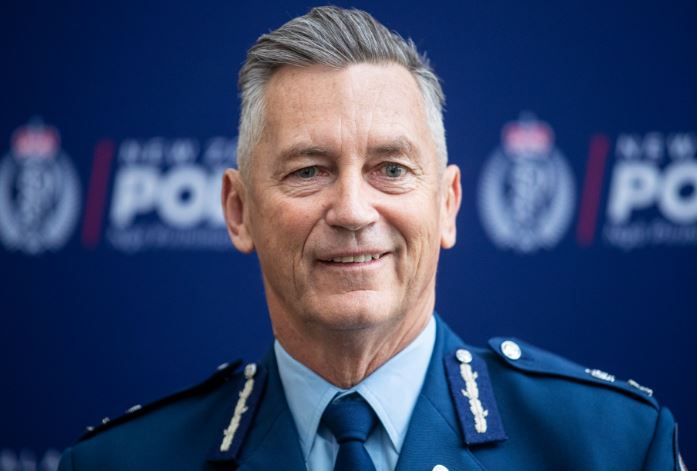
by CAA | May 20, 2025 | Library, Uncategorized
Most of the current failures are caused by a lack of understanding of some fundamental principles around service delivery and service efficiency.
An antithesis of sound policing is a current paradigm in vogue, the functional relationship (or lack thereof) the Force has with victims.
A prime example is the case set out below, without the force releasing a statement to justify their anti-victim stance, in this matter that is severely aggravated because the victim also happens to be a retired Police member.
We can only hope for all Victorians, including retired police, that the new Chief Commissioner does not ‘BEAT AROUND THE BUSH!’ on addressing the priority of a victim-centric approach to policing.
On the ‘Current Affair’ program on the 9th of May, an alarming story on the demise of ADAM SOMTAG, a recently retired Policeman who had served this State for over 20 years, was aired.
Adam apparently intervened in an incident when an illegal graffiti artist was defacing a Council sign.
Adams’ instincts kicked in, and he even went to the trouble of filming the incident on his mobile and put the incident on local social media to identify the perpetrator.
His alleged error was not reporting the matter straight away. The delay in reporting was not motivated by any sinister reason but simply to help his former colleagues by handing them the identity of the perpetrator with the report of the damage. A ‘lay down Misere; in police parlance, translates to an open and shut case.
The upshot of this exercising of a civic duty sees Adam now facing a possible criminal charge for grabbing the shirt of the perpetrator as he confronted him.
The camera footage broadcast shows a very minor altercation instigated by the perpetrator. Adams’ actions seemed defensive rather than offensive and were more instinctive self-preservation rather than aggressive.
Victoria Police, for their part, have committed an embarrassing ‘faux pas’.
The Police force has allegedly targeted the former police member instead of the perpetrator.
Disrespecting former police members is far too common. It shows that many serving members within VicPol have no perception of the police conditioning values that retired members retain, the most notable one being their Oath of Office.
The Police Act stipulates that a Police member is bound by their oath of office while a serving member of Victoria Police. Once they retire and are no longer employed by Victoria Police, they are no longer bound by their oath of office.
Well, that is what the legislation says, but most former police officers have not denounced their oath; their part of the bargain. Retired former police officers do not, as a general rule, exercise or attempt to exercise their former authority; however, they report matters, and their previous experience makes them ideal for this task.
It is not only current police who disrespect their former colleagues,
it is rife amongst non-police contractors operating the communication systems, 000. We have had a number of reports of those operators dismissing the fact that a complaint is from a former member when it should add weight to the issue.
After being a police member for many years, an oath is a way of life, imbued in their soul that is reinforced by the community, or at least that part of the community that respect Police, and retired members are continually reminded in all sorts of community interactions that they were a member of the force. It is not uncommon, nor do retired members pursue it, but they are often introduced as former police members in many social and professional situations. Moreover, it is not uncommon for individuals to seek out ex-members for advice on Police related matters.
Retired police are respected more by the community than the Force, which is very sad given that the vast majority of retirees have served the community for long periods and are still and always will be proud of their Police service.
There is a misconception, amongst serving police, that ex-police are generally bitter and twisted, but that is so far from the truth as to be a poor reflection on those who hold that view.
There is no doubt that some former Police officers are bitter and twisted, but they are a high-profile minority creating a false illusion of reality.
The phrase often quoted by former police is, ‘there is nothing more ex than an ex’, indicting the hurt and disrespect usually associated with interactions between former police and the current Force members.
Many of these former police could be a valuable resource to assist the Force in these times of austerity.
A properly constituted Force Reserve could alleviate some pressure on the serving members, reducing work-related stress and improving the Force’s Service Delivery.
It may not be to every former member’s liking or convenience, but there would be substantial numbers who would be, in the right circumstances, interested in taking up part-time positions.
The injection of experience from suitable former police and their experience in living outside the police bubble in the community would be ideal for assisting the new Chief Commissioner to help fix the broken Force.

by CAA | May 9, 2025 | Library, Uncategorized
The appointment of former New Zealand Police Commissioner Mike Bush as Victoria’s new Chief Commissioner opens the way for a new era of back-to-basics policing.
To be effective, Mr Bush will need to exhibit an unfailing commitment to always acting with integrity.
A reputation for acting with and exhibiting integrity gains the trust of the police workforce and the trust of the public the force serves.
It is imperative that the Victoria Police change.
In June 2022, the Community Advocacy Alliance (CAA) called for a Police leader independent of the Victoria Police to implement change because the workforce and public trust in police leadership had declined dramatically.
Both police and the public have become disenchanted by the way policing has been conducted over the last twenty or more years.
Mr Bush has an impressive record of changing the then totally reactive policing method in New Zealand to a predominantly proactive crime prevention model that reduced the incidence of crime by twenty per cent in four years.
While arresting and charging offenders is a major requirement of an effective police force, preventing crime is an essential top priority.
The best policing produces no measurable result. If there is no disorder, no crime and no traffic offences, policing may be highly effective, but there is nothing to measure or do except to note the reduction in crime and disorder and the increase of faith in police by the community.
The drop in the crime rate in New Zealand under the Bush-style leadership of police is strong evidence that a new policing model can be introduced, led and managed by this appointment.
Basically, we must see a return to the nine Peelian (ethics, trust and engagement) policing principles:
- To prevent crime and disorder, as an alternative to their repression by military force and severity of legal punishment.
- To recognise always that the power of the police to fulfil their functions and duties is dependent on public approval of their existence, actions and behaviour, and on their ability to secure and maintain public respect.
- To recognise always that to secure and maintain the respect and approval of the public means also the securing of the willing co-operation of the public in the task of securing observance of laws.
- To recognise always that the extent to which the co-operation of the public can be secured diminishes proportionately the necessity of the use of physical force and compulsion for achieving police objectives.
- To seek and preserve public favour, not by pandering to public opinion, but by constantly demonstrating absolutely impartial service to law, in complete independence of policy, and without regard to the justice or injustice of the substance of individual laws, by ready offering of individual service and friendship to all members of the public without regard to their wealth or social standing, by ready exercise of courtesy and friendly good humour, and by ready offering of individual sacrifice in protecting and preserving life.
- To use physical force only when the exercise of persuasion, advice and warning is found to be insufficient to obtain public co-operation to an extent necessary to secure observance of law or to restore order, and to use only the minimum degree of physical force which is necessary on any particular occasion for achieving a police objective.
- To maintain at all times a relationship with the public that gives reality to the historic tradition that the police are the public and that the public are the police, the police being only members of the public who are paid to give full-time attention to duties which are incumbent on every citizen in the interests of community welfare and existence.
- To recognise always the need for strict adherence to police-executive functions, and to refrain from even seeming to usurp the powers of the judiciary of avenging individuals or the State, and of authoritatively judging guilt and punishing the guilty.
- To recognise always that the test of police efficiency is the absence of crime and disorder, and not the visible evidence of police action in dealing with them.
These principles define the mission: keeping law and order, reinforcing a sense of safety, and preventing crime.
Today, the principles must still guide police work and form the basis for a relationship of trust between the police and the community.
This is clearly indicative that it is time for Victoria Police to modernise its leadership and management processes and shake of decades of ineptness while retaining what is sound.
We believe that the capacity, under the leadership of Mike Bush will enable Victoria Police to address these issues.
The CAA believes that the reintroduction of programs like Blue Light, the Ropes Program, the Police in Schools program introduced in Victoria in 1989 and which ran very successfully moderating youth crime until abolished in 2006 and other proactive initiatives will receive active support from Mr. Bush as Chief Commissioner and we will see rapid and lasting improvement in combatting crime in Victoria and the restoration of respect for police that has so sadly been lost.
Mr Bush has demonstrated he is the right person to lead Victoria out of the morass into which it has descended.
Along with the CAA, I welcome Mr Bush and wholeheartedly endorse his appointment.


